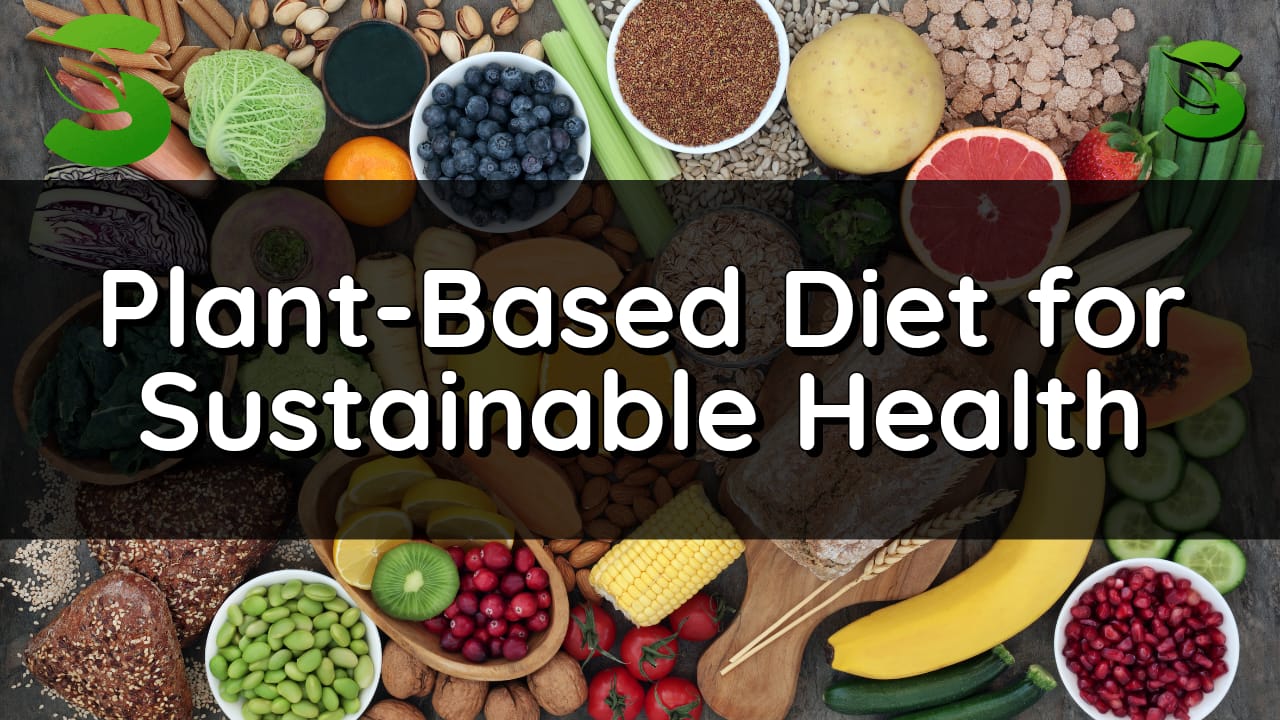Discover the incredible benefits of a Plant-Based Diet for Sustainable Health. Learn how to embrace this lifestyle, and explore FAQs about it.
Introduction
In a world where health and sustainability are paramount, the Plant-Based Diet for Sustainable Health is gaining momentum. This lifestyle not only nourishes our bodies but also contributes to a greener planet. This comprehensive guide will walk you through the essentials of adopting a plant-based diet, ensuring you understand the ins and outs of this sustainable choice.
The Essence of a Plant-Based Diet
A Plant-Based Diet, sometimes referred to as veganism, is centered around foods derived from plants. It involves consuming fruits, vegetables, whole grains, legumes, nuts, and seeds, while excluding or significantly reducing animal products such as meat, dairy, and eggs.
Benefits of a Plant-Based Diet
A plant-based diet offers a multitude of benefits, including:
Enhanced Heart Health
A Plant-Based Diet is heart-friendly, as it reduces the intake of saturated fats found in animal products, thus lowering the risk of heart diseases.
Weight Management
Choosing plant-based options often leads to easier weight management due to lower calorie density and higher fiber content in plant foods.
Sustainable for the Planet
By reducing the demand for animal agriculture, this diet contributes to reducing greenhouse gas emissions and conserving water resources.
Better Digestive Health
Fiber-rich plant foods aid digestion, prevent constipation, and promote a healthy gut.
Improved Blood Sugar Control
The diet can help manage blood sugar levels, making it an excellent choice for those with diabetes.
Lower Risk of Cancer
A Plant-Based Diet is associated with a decreased risk of certain types of cancer due to its high antioxidant content.
Embracing a Plant-Based Lifestyle
Transitioning to a plant-based diet can be smooth and enjoyable. Here are some tips:
Gradual Shift
Start by gradually reducing animal products and increasing plant-based foods in your diet. This will make the transition more manageable.
Balanced Nutrition
Ensure your diet is well-rounded, incorporating a variety of fruits, vegetables, whole grains, and protein sources like beans and tofu.
Seek Inspiration
Discover plant-based recipes and meal ideas to keep your culinary journey exciting.
Read Labels
Be mindful of hidden animal-derived ingredients in processed foods and opt for vegan alternatives.
Listen to Your Body
Pay attention to how your body responds to the diet and make adjustments as needed.
Plant-Based Diet for Sustainable Health
The core of the Plant-Based Diet is its sustainability. Let’s delve into the environmental impact:
Reduced Carbon Footprint
Plant-based diets produce fewer carbon emissions, making them eco-friendly and sustainable.
Preservation of Water Resources
Animal agriculture consumes vast amounts of water. A plant-based diet aids in conserving this precious resource.
Biodiversity Conservation
Reducing the demand for animal farming helps protect natural habitats and wildlife.
Ethical Treatment of Animals
By not consuming animal products, you actively contribute to the welfare of animals and promote cruelty-free living.
FAQs about Plant-Based Diets
Q: Can I get enough protein on a plant-based diet?
A: Yes, you can! Plants like tofu, legumes, and quinoa are excellent sources of protein. A well-balanced plant-based diet can meet your protein needs.
Q: How can I ensure I get enough vitamins and minerals?
A: Consuming a wide variety of plant foods ensures you receive a broad spectrum of nutrients. Consider supplements for vitamin B12 and vitamin D.
Q: Is a plant-based diet suitable for children?
A: Yes, with proper planning. Ensure children receive essential nutrients for growth and development, and consult a pediatrician.
Q: What are the environmental benefits of a plant-based diet?
A: Reducing meat and dairy consumption lowers greenhouse gas emissions, conserves water, and supports biodiversity.
Q: Can a plant-based diet help with weight loss?
A: Yes, it can. The diet’s lower calorie density and high fiber content make it conducive to weight management.
Q: Are there any cultural considerations for adopting a plant-based diet?
A: Cultural variations may influence the transition, but many cultures have plant-based dishes that align with this diet.
Conclusion
Embracing a Plant-Based Diet for Sustainable Health is not only beneficial for your well-being but also contributes positively to our planet. By making informed choices and transitioning thoughtfully, you can enjoy a healthier and more sustainable life. Start your journey today and reap the rewards.







